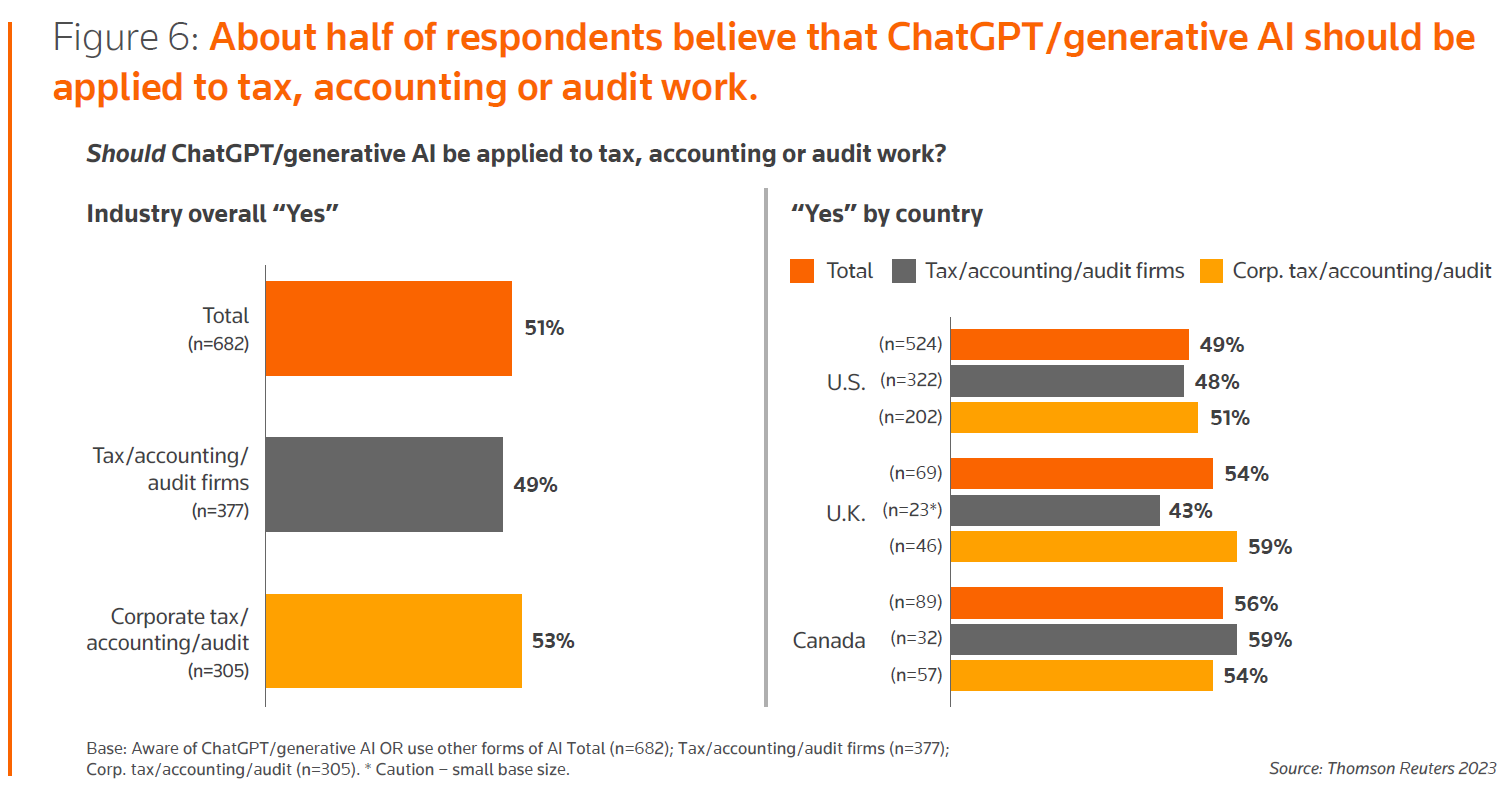Like their counterparts in the legal field, tax professionals in accounting firms and corporate tax departments see the huge potential in ChatGPT & generative AI, but are also aware of the risks
While the potential business uses for ChatGPT and generative AI are just beginning to become apparent, the possible risks and repercussions to numerous industries are also rising to the forefront.
Accountants, auditors, and other tax professionals are among the vocations that many pundits and experts predict will be affected, disrupted, and possibly transformed by this disconcertingly competent new technology. After all, ChatGPT has been trained in a way, on the United States tax code, and it can answer complex tax questions in a matter of seconds.
Of course, its answers aren’t always necessarily correct — or worse, they may be just accurate enough to mislead people — but expectations are that ChatGPT’s performance will improve as it learns more about whatever subject it is prompted to discuss, including more complex tax questions.

To examine this development further, the Thomson Reuters Institute conducted surveys and follow-up interviews with leaders at accounting firms and corporate tax departments in the United States, the United Kingdom, and Canada. We then distilled the results into a new report, ChatGPT & Generative AI within Accounting Firms and Corporate Tax Departments. This report summarizes their attitudes toward ChatGPT and generative AI, what use-cases survey respondents envision for the technology as it matures, as well as their views on its potential risks.
The report is derived from the results of a five-minute survey that the Thomson Reuters Institute sent to tax, accounting & audit firms and corporate tax departments in the U.S., U.K., and Canada, as well as members of the Thomson Reuters Institute Influencer Coalition panel. The survey was conducted between May 3-15, 2023, and 771 tax professionals responded.
More than half (57%) of the respondents were from tax, accounting & audit firms, and 43% were from corporate tax, accounting & audit departments. A large majority (85%) of the respondents were from firms with between 2 and 49 people, and, with the exception of a few solo practitioners, the rest were from larger firms, most of which (78%) are located in the U.S.
The report did reveal several key findings that shed some light on the views of tax professionals on these technologies, including:
-
-
- Open-minded but cautious — At many tax & accounting firms, awareness of ChatGPT and generative AI is generally very high, and is even higher among corporate tax departments, but opinions about its utility in the tax profession are decidedly split at the moment.
- ChatGPT the “grey” areas of tax — Tax professionals’ main objection to using the current version of ChatGPT is that while it may be useful for basic tax research, it tends to struggle with more complex tax questions. This may change as the technology matures, of course, but many respondents pointed out that tax rules are not black and white. Most tax work takes place in the grey areas, in which intelligent interpretation is required.
- ChatGPT at work? Maybe… eventually — Only a small number of tax, accounting, and audit professionals in either accounting firms or corporations are currently using or plan to use ChatGPT, but more are considering it.
-
As one survey respondent said: “The technology will never reach the equivalent of a talented professional in terms of planning and technical expertise.” Despite these concerns, four in ten tax, accounting & audit professionals still think it is possible they will see some sort of rollout of generative AI within the next six months.







